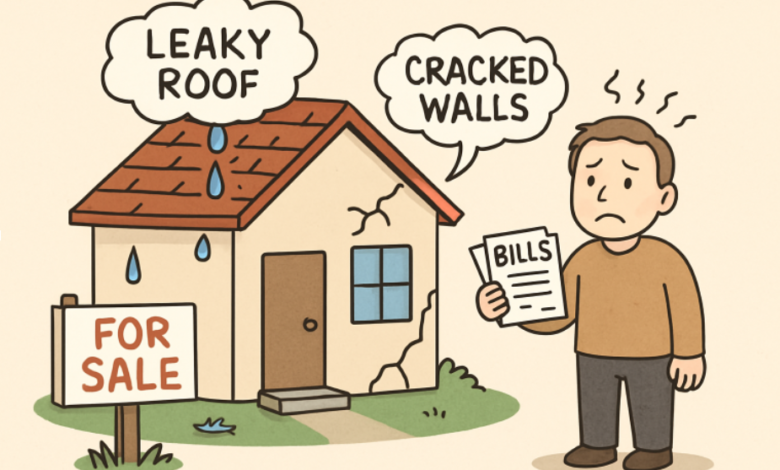Why Selling a Problem Property Might Be a Smarter Business Decision

Introduction
Managing a difficult property can be far more taxing than most owners realize. Endless repairs, unreliable tenants, or changing neighborhood dynamics often consume financial and emotional resources. Rather than holding onto a problematic investment, property owners can explore alternatives that offer greater flexibility and peace of mind. In many cases, considering a house sale provides a clear pathway to resolving ongoing challenges while opening doors to new opportunities elsewhere.
Properties that persistently underperform drain equity, divert attention from more profitable ventures, and create stress. If your property constantly demands attention or operates at a loss, letting go could be more profitable in the long run. A thoughtful approach to assessing the property’s actual worth, while monitoring market trends, is essential for making the right business decision.
High Maintenance Costs
When a property requires ongoing repairs, these hidden costs quickly add up. The escalating outlay can eliminate expected rental returns or appreciation from aging roofs, chronic plumbing leaks, and HVAC breakdowns. Continually patching up problem areas is rarely a sustainable solution. Selling the property immediately removes this drain and provides liquidity for better-aligned investments.
An honest cost-benefit analysis often reveals that further upkeep and renovations surpass any likely increase in property value. If you’re experiencing such a cycle, it’s wise to start planning an exit rather than tossing more money at temporary fixes.
Tenant Troubles
Problem tenants introduce a range of headaches—from late or missing rent payments and property damage to neighborhood disputes and legal issues. These problems are not just inconvenient; they dampen the return on your investment and can even trigger larger community or code violations. Trying to manage difficult tenants can sap energy and lead to additional costs from legal fees or vacancies.
Opting to sell home in such circumstances allows owners to redirect their energy to more stable income streams or properties with a higher quality of tenant. This pivot also safeguards against legal complications that escalate from repeated tenant disruptions.
Market Conditions
Real estate markets are never static. Economic outlooks, interest rate changes, and shifts in local demand all strongly influence property values. Waiting for improvement can be risky if your property is struggling due to macroeconomic trends or sluggish neighborhood growth. Many savvy owners sell during a relatively stable market rather than risk further losses if conditions deteriorate.
Property Location
Neighborhoods can change rapidly due to crime, new developments, school zoning updates, or city rezoning. Diminished community appeal translates directly into reduced property values and rental demand. Exiting before negative trends set in offers a chance to get a better return and tactically reinvest in a more promising area. Timing is crucial, as waiting too long can mean missing out on optimal buyers or price points.
See also: Why Small Business Loans for Veterans Have Higher Approval Rates
Personal Circumstances
Life shifts, such as career changes, expanding families, major health events, or sudden financial constraints, make property issues even harder to navigate. In these scenarios, clinging to a problem property only introduces new hurdles. Selling quickly provides both mental relief and financial flexibility, allowing you to realign resources for whatever life throws your way. Experts recommend speaking with a real estate professional to assess all options when life’s circumstances change dramatically.
Property Value Issues
Worsening property condition, neglect, or declining market demand can cause value to dip below what’s invested. Faced with large repair bills, investing further is not always sensible, particularly if the area or building is unlikely to recover. Accepting these realities and deciding to sell avoids pouring more funds into a losing asset.
Difficulty Selling in the Current Condition
Major repairs or outdated features can make listing a challenge. Homes linger on the market, lose value, and may need repeated price cuts to attract buyers. Rather than gambling on costly renovations in hopes of a sale, many owners find it more productive to list the property “as-is.”
Conclusion
Problem properties can weigh heavily on owners—financially, emotionally, and logistically. Selling can provide immediate relief, inject capital for other projects, and facilitate smoother transitions during major life events. Evaluating your specific challenges and market trends with guidance from experienced professionals ensures that selling is not just an escape from problems but a strategic move towards a better future.



